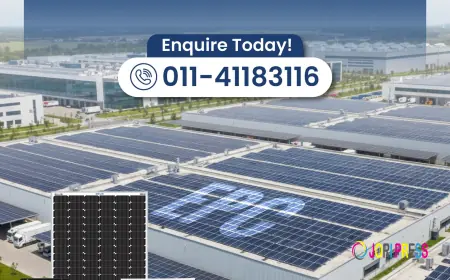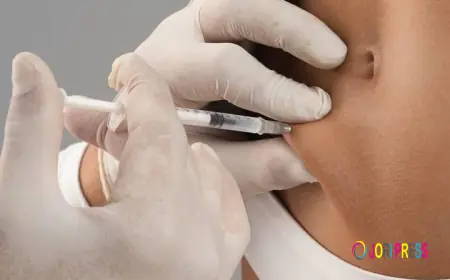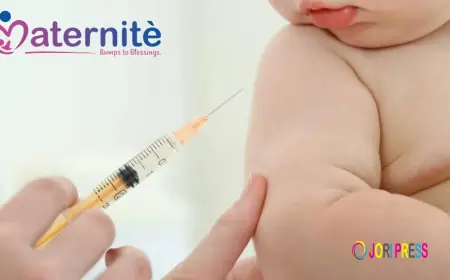Unpacking Depression Treatment: A Path Towards Brighter Days
Depression is more than just feeling sad; it's a serious mood disorder that can profoundly affect how you feel, think, and behave.
It can interfere with daily life, relationships, and even physical health. The good news is that depression is highly treatable, and a range of effective strategies can help individuals manage symptoms and regain their well-being. Studies show that complete remission is achieved in 70%-90% of patients with depression, though some individuals may experience treatment-resistant forms.
If you suspect you or a loved one might be experiencing depression, seeking professional help is the crucial first step. A doctor or mental health professional can provide a diagnosis and help you develop a personalized treatment plan Depression Treatment.
Core Pillars of Depression Treatment:
Most effective depression treatment plans involve one or a combination of the following approaches:
Psychotherapy (Talk Therapy):
This involves talking with a trained mental health professional to explore your thoughts, feelings, and behaviors. Therapy provides tools and strategies to cope with challenges, change negative thought patterns, and improve overall well-being. Psychotherapy can effectively relieve acute depression and can also help prevent relapse by teaching better coping mechanisms.
Cognitive Behavioral Therapy (CBT): One of the most common and effective therapies for depression. CBT helps you identify and challenge negative thinking patterns and behaviors that contribute to depression. It focuses on practical strategies to change how you react to difficult situations and often involves "homework" assignments to apply new skills.
Interpersonal Therapy (IPT): Focuses on improving your relationships and social interactions, as relationship problems can often contribute to or worsen depression.
Psychodynamic Therapy: Explores unconscious processes and past experiences (often from childhood) that may be influencing current depressive symptoms. This is often a longer-term therapy.
Dialectical Behavior Therapy (DBT): While initially developed for Borderline Personality Disorder, elements of DBT (like mindfulness, emotional regulation, and distress tolerance skills) are often adapted to treat depression, particularly when emotional intensity is a significant factor.
Medication (Antidepressants):
Antidepressants are prescription medications that work by affecting neurotransmitters in the brain (like serotonin, norepinephrine, and dopamine) that are believed to play a role in mood regulation. They are often prescribed for moderate to severe depression and can be particularly effective when combined with therapy.
Selective Serotonin Reuptake Inhibitors (SSRIs): Often the first line of treatment due to their effectiveness and generally fewer bothersome side effects than older classes of antidepressants. Examples include citalopram (Celexa), escitalopram (Lexapro), fluoxetine (Prozac), paroxetine (Paxil), and sertraline (Zoloft). Common side effects can include nausea, insomnia, and sexual problems.
Serotonin-Norepinephrine Reuptake Inhibitors (SNRIs): Work on both serotonin and norepinephrine. Examples include duloxetine (Cymbalta) and venlafaxine (Effexor XR). Side effects may include nausea, drowsiness, and dry mouth.
Atypical Antidepressants: A diverse group of medications that don't fit neatly into other categories, such as bupropion (Wellbutrin), mirtazapine (Remeron), and trazodone. Side effects vary by drug type but can include dizziness, dry mouth, or insomnia.
Tricyclic Antidepressants (TCAs) and Monoamine Oxidase Inhibitors (MAOIs): Older classes of antidepressants that can be very effective but often have more significant side effects and require careful monitoring. TCAs may cause constipation, dry mouth, or blurred vision, while MAOIs require strict dietary restrictions due to potential interactions with certain foods.
Important Note: Finding the right antidepressant can sometimes take trial and error. It's crucial to work closely with your doctor, report any side effects, and never stop taking medication without medical guidance, as this can lead to withdrawal symptoms.
Advanced and Emerging Treatments:
For individuals with severe or treatment-resistant depression (when other treatments haven't been effective), there are other options:
Electroconvulsive Therapy (ECT): A highly effective treatment for severe depression, especially when other methods have failed, or in cases of severe melancholic or psychotic depression. It involves a brief, controlled electrical stimulation of the brain under general anesthesia. Modern ECT is much safer and more refined than older versions, with substantial improvement in approximately 80% of patients with severe major depression. Side effects can include temporary confusion and memory loss.
Transcranial Magnetic Stimulation (TMS): A non-invasive procedure that uses magnetic fields to stimulate nerve cells in the brain involved in mood regulation. It's often used for treatment-resistant depression and has fewer systemic side effects than ECT. Repetitive TMS (rTMS) shows about a 50% response rate with over 30% achieving full remission. Newer forms like Deep TMS (dTMS) show even higher efficacy.
Esketamine (Spravato) Nasal Spray: Derived from ketamine, this FDA-approved nasal spray offers a rapid-acting treatment option for treatment-resistant depression, administered under medical supervision. It works through a different mechanism than traditional antidepressants, affecting glutamate levels in the brain.
Ketamine Infusion Therapy: Intravenous ketamine, while often used off-label, has shown rapid antidepressant effects for some individuals with severe or treatment-resistant depression.
Psychedelics (under research): While not yet widely available as clinical treatments, substances like psilocybin and MDMA are showing promising results in clinical trials for treatment-resistant depression and PTSD, ushering in a new era of research into novel neurotherapeutics.
Holistic and Lifestyle Approaches:
Complementary approaches can significantly enhance the effectiveness of core treatments and support overall well-being:
Regular Exercise: Proven to boost mood, reduce stress, and improve sleep. Even moderate intensity exercise for 150 minutes/week can reduce symptoms.
Balanced Diet: Nutritional choices, including adequate Omega-3 fatty acids, can impact mood and energy levels.
Sufficient Sleep: Addressing sleep disturbances is crucial for managing depression.
Mindfulness & Meditation: Practices that cultivate present-moment awareness and non-judgmental acceptance can help regulate emotions. Mindfulness-based cognitive therapy is often delivered in an eight-week group program.
Stress Management Techniques: Yoga, deep breathing exercises, and progressive muscle relaxation can help alleviate stress that exacerbates depression.
Strong Social Support: Connecting with friends, family, or support groups can combat feelings of isolation. Organizations like the National Alliance on Mental Illness (NAMI) offer valuable resources.
Journaling: Expressing emotions through writing can be therapeutic.
Nature Exposure: Spending time in natural environments has been shown to reduce anxiety and depression.
Acupuncture & Massage Therapy: These alternative therapies may help reduce symptoms and promote relaxation.
The Journey to Recovery:
It's important to remember that depression treatment is a journey, not a sprint. Recovery looks different for everyone, and it often involves:
Patience: Finding the right combination of therapies and medications can take time.
Persistence: Sticking with your treatment plan, even when you feel better, is vital to prevent relapse.
Self-Compassion: Be kind to yourself during the process.
Open Communication: Talk openly with your doctor and therapist about your symptoms, side effects, and any concerns.
If you are struggling with depression, know that you are not alone, and help is available. Reaching out is a brave and powerful step towards reclaiming your life and finding your path to brighter days.
What's Your Reaction?
 Like
0
Like
0
 Dislike
0
Dislike
0
 Love
0
Love
0
 Funny
0
Funny
0
 Angry
0
Angry
0
 Sad
0
Sad
0
 Wow
0
Wow
0
















































